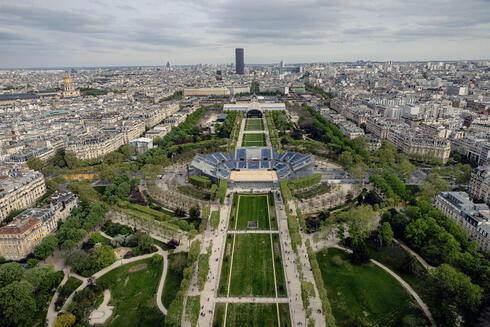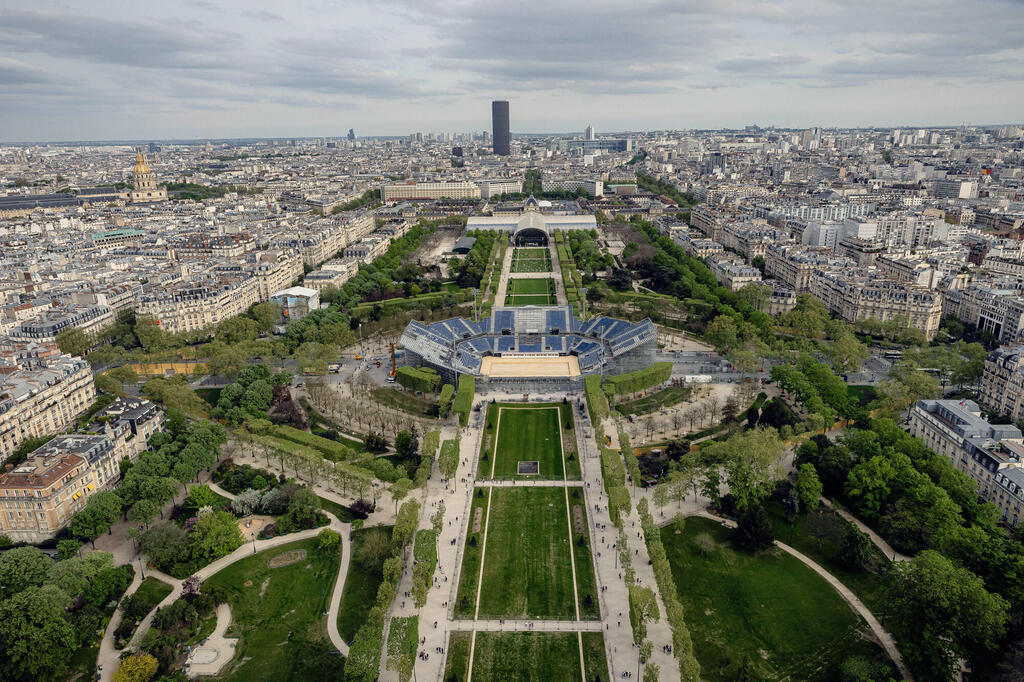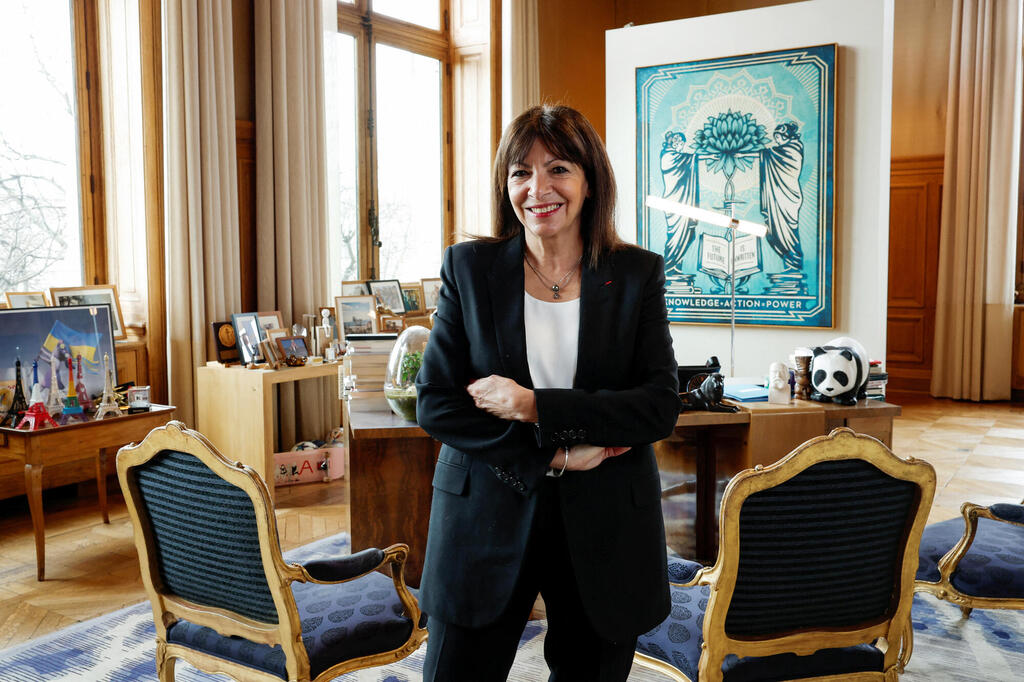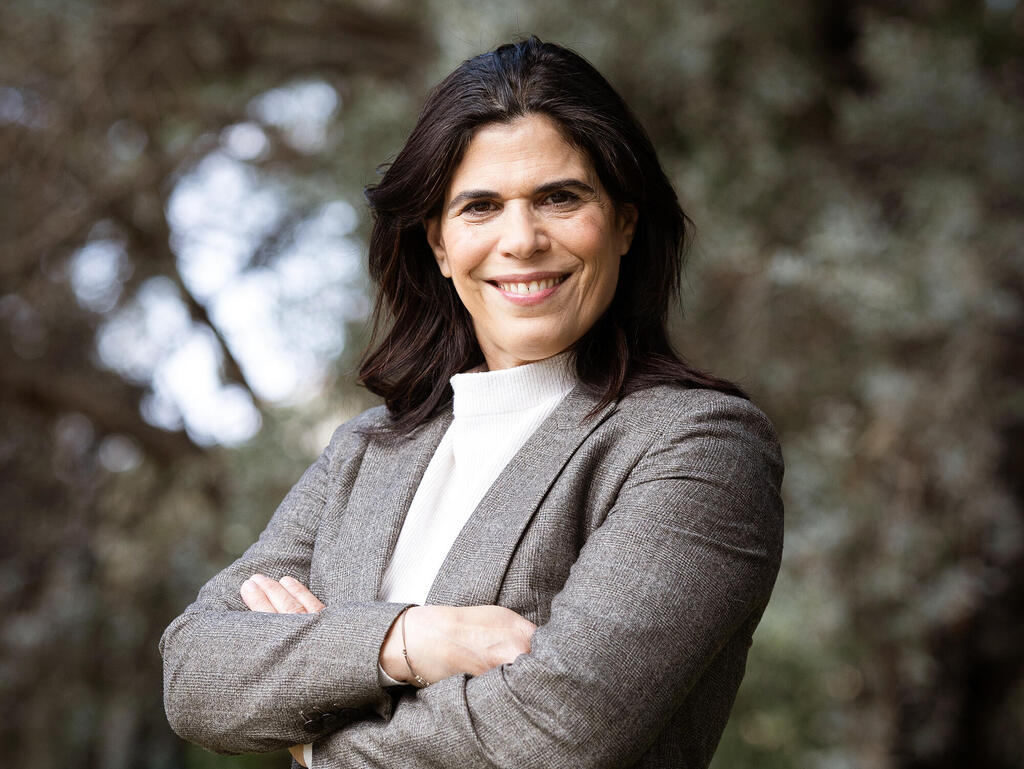
Cardboard beds, less meat and no air conditioners: Paris 2024 to be the “greenest” Olympics ever
This summer’s Olympic Games have promised to be green and be historically climate friendly. Will the Paris Olympics lead to the environmental and social changes the world is currently craving?
13 million viewers, 10,000 athletes from more than 200 countries, and one city that has made an unprecedented commitment: to hold the greenest Olympic Games ever this June, making the Paris 2024 Olympics "historic for the climate." The host city's ambition to reduce the environmental impact of the sports games is supported by Olympic committees from around the world, including Israel, which are drafting annual plans to reduce their carbon footprint and adapt to a much hotter era. The Israeli Olympic Committee has formulated a strategic plan with this in mind over the past year and is beginning to implement it now.
Since awareness of the climate crisis has increased, countries hosting sports competitions have been making statements about "green games," but usually the gap between statements and reality is vast. Past global sports events have never been environmentally friendly and even tended to worsen pollution over the years, despite organizers' declarations. Last year, Qatar was revealed to be the country that hosted the least environmentally-friendly World Cup ever, despite its green declarations.
In Paris, they will try to do things differently; walking and cycling instead of using cars, a menu with more plant-based nutrition and fewer steaks, solar panels temporarily floated on the Seine River, and even no air conditioning in the athletes' village. The organizers have set a goal of limiting the greenhouse gas emissions generated by the games to cut emissions in half compared to the London 2012 Olympics.
The organizers will try to make this year's games an integral part of the city of Paris, which in recent years has become a symbol of a climate revolution and sustainable urban planning, under the leadership of Mayor Anne Hidalgo. For example, the opening ceremony will not be held in the Olympic Stadium but on the banks of the Seine River with about 400,000 people in attendance. To make the games more accessible by foot, public transport, and bicycle, most of the competition venues will be located within a distance of about 10 kilometers from each other (except for the surfing competitions). Paris has also expanded a trend that began in recent years: converting parking spaces in the city into green areas, building more bicycle paths (about 600 kilometers have been added since 2014), and renovating buildings to make them more climate-friendly.
Related articles:
Among the main environmental criticisms of the Olympic Games are the carbon emissions and environmental pollution caused by constructing new buildings, which hosting cities are typically required to do, which often become white elephants afterwards. In contrast, Paris opted to utilize pre-existing buildings for the majority of events - about 95% of the buildings that will be used. New buildings that will be constructed, such as temporary swimming pools, will be dismantled and reinstalled later in communities which currently lack public pools.
Existing buildings will steal the show and integrate the Olympics into the city. For example, Place de la Concorde, built in the 18th century, will serve as a venue for skateboarding competitions, and the Georges Vallerey swimming pool from the 1924 Olympics will be renovated. Newly built buildings, such as the Olympic Village and the aquatic center, will generate 30% less carbon per square meter than average in France today. This is because the municipality chose to use wood, low-carbon concrete, or materials salvaged from demolition in the construction process. The roofs of the buildings possess solar panels and even vegetation to absorb the heat will be installed. In the Seine River, by the way, a significant water cleaning project is underway costing 1.4 billion euros, in order to hold competitions there (at this stage, it is unclear if the water quality will allow it).
The Olympic Village - the largest construction project - will cover approximately 128 dunams (31 acres) and will serve as a new residential neighborhood following the games for about 6,000 residents. The project has attracted criticism for the measures that are being taken to reduce the environmental impact. The beds will be made of cardboard to reduce the use of harmful materials and notably, there will be no air conditioning in the athletes’ rooms. Instead, pipes have been installed to circulate cold water to cool the rooms. Several teams, including Australia, the U.S., Canada, and Ireland, have already threatened to bring portable air conditioners with them as the Olympics will be held at the peak of summer.
Judoka, Olympic gold medalist and Chair of the Israeli Olympic Committee, Yael Arad, is working to integrate sustainability into competitive sports in Israel, but she did not hesitate to equip Israeli athletes with air conditioning. "Between fulfilling professional dreams and sustainability, the balance will be disrupted if we do not allow our athletes to sleep with air conditioning on the most important day of their professional lives. When I competed in Barcelona, we didn’t have air conditioning, and I know how important it is; it’s distracting and diverts attention from the main thing. The system installed in Paris will only reduce the room temperature by about three degrees; that isn’t enough. Meanwhile, bringing air conditioners is not going so smoothly because the organizing committee has set strict standards for the type of gas that can be used in the air conditioner."
Carbon emissions from the energy sector are considered a significant cause for concern. The burning of fossil fuels (coal, oil, and gas) to generate heat for electricity or transportation is the primary reason for greenhouse gas emissions and the ongoing climate crisis. The games' organizers claim they have nearly zeroed out emissions from electricity (electricity such as natural gas will account for less than 1% of the games' footprint, according to estimates). Part of the energy for the games will come from solar panels placed on the roofs of the Olympic Village, floating on the surface of the Seine, and hung above the new aquatic stadium. The rest will come from the French power grid, which is primarily nuclear energy.
Regarding Diesel-powered generators, which are typically kept on standby in case of a power outage and are one of the most polluting aspects of sports events, the organizers have found solutions to strengthen the local infrastructure together with the electricity supplier.
One issue that contributes significantly to emissions is not in the hands of the organizers of global sports events: flights from around the world to attend the games. Unlike the World Cup held last year in Qatar, the current Olympics invite residents from across Europe to come to Paris by train instead of flying. Flights can sometimes be much cheaper than trains, and it's doubtful how many visitors will prefer this option over the one offered by one of the games' main sponsors, Air France. For now, the Olympic committee is recruiting athletes to set a good example. Four national teams from the Netherlands, Britain, Belgium, and Switzerland, have agreed to come by train.
“Olympic events are conducted with sustainability in mind,” says Arad. “The organizing committee has 55 sponsors, and we cannot accept sponsors with conflicts of interest. Sponsors from the oil and gas sectors tried very hard to enter the games, but Mayor Hidalgo didn’t agree. This is a very brave decision on her part. The issue of flights is also significant as it involves a lot of emissions, and typically each athlete flies to about 10 competitive events worldwide every year. These are usually not trips that can be done by train. This is an unresolvable issue for the most part, so these emissions need to be offset somewhere else.”
Israeli Olympic Committee adopts its own sustainability plan
In January, the Israeli Olympic Committee decided to join the global effort and signed the Sports for Climate Action Principles by the UN and the International Olympic Committee. The committee established a sustainability committee and appointed Prof. Adi Wolfson, a leading figure in the field in Israel, as its head. The goal is to implement a sustainability strategy in every aspect of Olympic activity in Israel and to enlist the 32 Olympic associations in Israel for this purpose. Among other things, the Olympic Committee will encourage the bodies it oversees to manage resources wisely in the fields of infrastructure, events, and joint activities, and to educate and raise awareness about sustainability in sports.
After mapping the environmental impact of the different associations, the committee will implement extensive measures, including prioritizing green suppliers, reducing waste, healthy food at sports events, reducing the use of disposable utensils, switching to digital advertising, and more. The committee also aims to examine the sustainability model of event sponsors and its investment portfolio from a sustainability perspective.
“We want to connect the values of sustainability with the values of the Olympic Committee: excellence, determination, perseverance, and preparedness,” says Wolfson. “Sports have a significant impact on the environment; many people travel to these events, a lot of food is wasted, a lot of plastic is used, and more. On the other hand, the environment also directly impacts athletes and sports: from air pollution affecting their health to climate change altering the conditions in which they train and compete.”
Among the steps on the agenda, according to Wolfson, is planting a forest in Israel to offset flight emissions. “We checked and found that most of our emissions are from flights of athlete delegations funded by the committee. These flights are necessary, hence the [need to] offset them. For events in Israel, we want to offer transportation to save on private car trips.”
According to Yael Arad, “Sports connect people around the world more than anything else. When the International Olympic Committee (IOC) decided to adopt the issue, it said: we can influence so many competitions that take place worldwide. If they reduce emissions and the use of plastic even by 30%, we can help the world meet climate goals. We have the strongest influencers in the world: athletes. We can lead them to make an impact. IOC president, Thomas Bach, asked the local Olympic committees to enlist their networks for the cause. We look at Israeli sports in a broad perspective. We are the umbrella organization for Olympic sports in Israel. We take on the responsibility at the leadership level to influence Israeli society where we believe we have an impact. That's why I decided I want to lead the organization on this issue.”
Regarding the involvement of Israeli athletes in climate issues, Arad says “We have joint forums with the athletes, and they respond to activities in an amazing way. We believe that Israeli athletes will join the cause. This generation has a higher level of awareness; I see it on the ground. It's important to them, and they lead initiatives in the field. I would like them to connect to our strategic plan. When they join, their families will join, as will the young athletes from their team and club. When we start to implement the plan, we will find the right places to involve the athletes.”
The committee itself is currently planning its new headquarters in Petah Tikva close to a train station to make it easily accessible by public transport, and it will be based entirely on green building and sustainability principles.

















